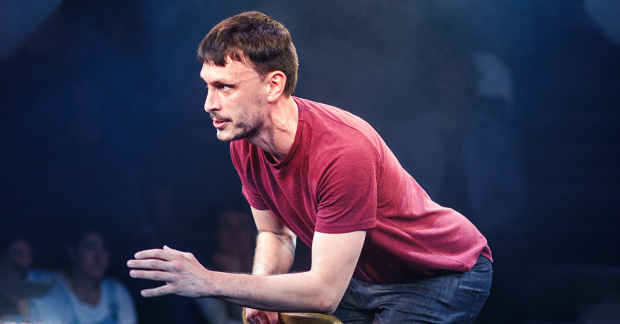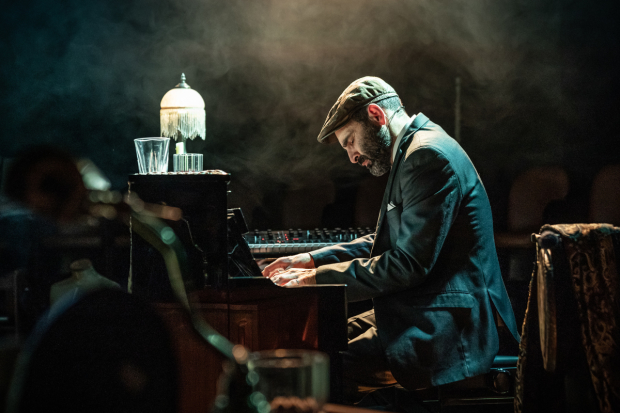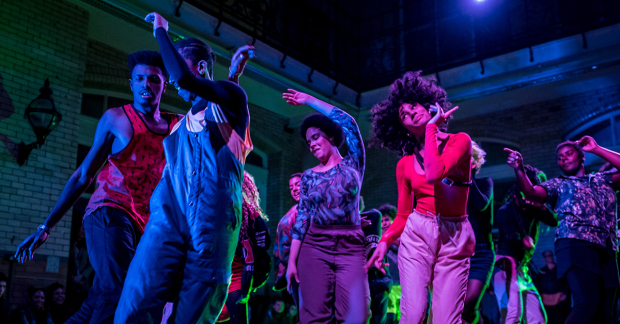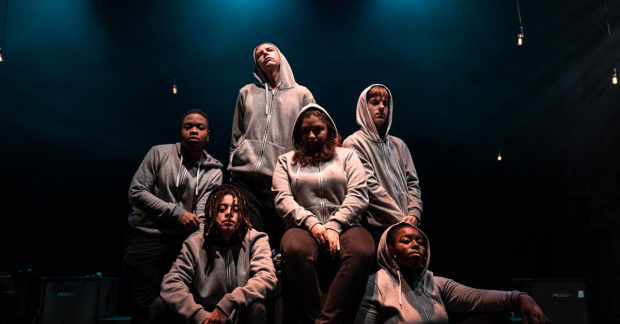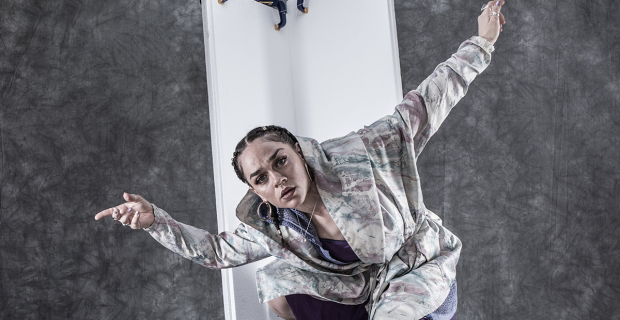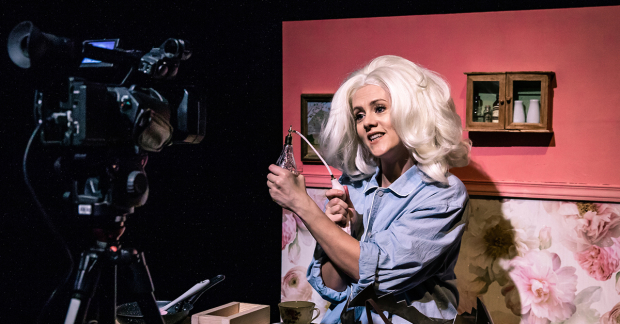Review: Autoreverse (Battersea Arts Centre)
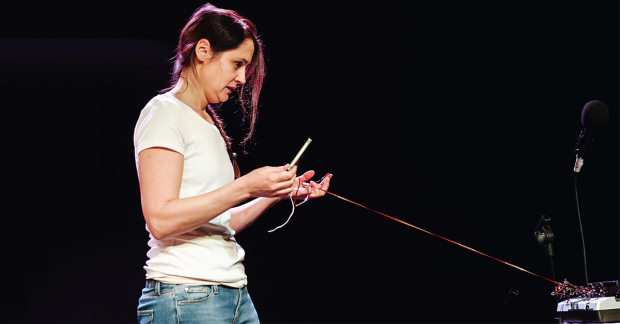
© Alex Brenner
On a stage full of old microphones and recording devices, there is an eerie silence. A single tape labelled "Play Me" is given to an unsuspecting audience member in the front row, who is shamefully unable to figure out how to put it into the cassette player – technology has certainly moved on leaps and bounds in the last four decades.
Eventually the voice of Florencia Cordeu – a rich, inviting tone, full of warmth and hope – comes through the speakers. It's the middle of the night when the performer records this message, full of the promise and excitement of a future still in front of her, "I'm recording this for you, but I don't know who you are". Cordeu approaches the unknown with positivity rather than with dread.
And that's the premise for much of Autoreverse, a show that uses cassettes as its narrative mechanism. The history of Cordeu's Argentinian family is replayed through these man-made constructs of plastic and iron oxide – the primary chemical used by the tapes to deliver the past into the present. The voices are from the late 1970s, right in the middle of Argentina's Dirty War in which right-wing military junta searched out political dissidents who they believed to be associated with left-wing socialism or Peronism. Thousands of people suddenly disappeared and many more – Cordeu's parents among them – fled persecution to Chile and eventually the USA.
Despite living through this terrifying era, the voices on the tapes are full of familial love, a positive energy that echoes through time. They were sent between distant relatives, the only methods of communication between a now-fractured family. And Cordeu is determined to protect her heritage – held on flimsy plastic and vinyl – at all costs. The conflict – nostalgic happiness anxiously coveted because it may soon be lost forever – is a core theme throughout the performance.
But like the snippets of fleeting memory seemingly heard at random, Autoreverse is muddled and confused. The show jumps back and forth in time without rhyme or reason, as a new tape is discovered and played. The journey is fragmented, a haphazard collection presented to an audience without a clear explanation of how it all fits together. It's as if Cordeu is still brainstorming ideas, reflecting in the middle of the night on whatever pops into her head – unfiltered and inconsistent.
There are some powerful moments in this tale of mixed metaphors. One of Cordeu's family members is among those who disappeared, and a video clipping of a family party records the only screen time of him that has survived. These 24 seconds of life are striking, a visual cue acting as one of the most impactful parts in a play so focussed on speech.
Overall, the need to preserve her legacy lacks urgency or intensity – if Omar Elerian's direction was more pronounced, it would be more impactful. There is a moment in the show when the point where the tapes end and Cordeu's own memories begin starts to blur – the artificial device that the past is imprinted upon starts defining her recollections rather than informing them. But this concept is fleetingly considered and then discarded for another, much like each tape is put to one side once it's at its end.
At the epilogue – in another attempt to pluck a narrative device out of thin air – Cordeu sits down with a bandoneon, a type of concertina popular in Argentina and Chile. Her past audio self has just started learning the instrument and is excited for the present performer to show her progress. But instead, Cordeu opens and closes the instrument without a tune – the sound of hollow air feels like the breath of the past come back to haunt her. This realisation of a hope unfulfilled proves most disappointing to Cordeu, and yet is the most powerful part of this production.
Autoreverse is overstuffed with ideas to convey and covet the past, trying to weave it into a narrative that examines identity in a slowly shrinking world. It's a shame that a show focussing so hard on the concept of memory is for the most part quite forgettable.





